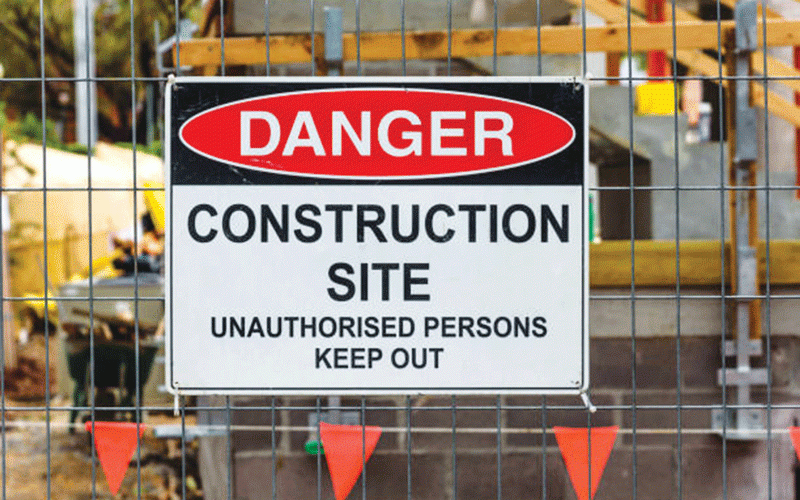
ZIMBABWE Lawyers for Human Rights (ZLHR) condemns the passage of the controversial and undemocratic Private Voluntary Organisations (PVOs) Amendment Bill (H.B.2A, 2024) by the Senate on October 17, 2024.
On March 1, 2024, the government gazetted the PVOs Amendment Bill, which seeks to amend the Private Voluntary Organisations Act.
The sought-after amendment came after the lapse of the PVOs Amendment Bill of 2021, to which the President raised reservations and did not assent.
In an alarming move, the Senate fast-tracked and passed the PVOs Amendment Bill at supersonic speed on October 17, 2024.
The contents of the PVOs Bill passed by the Senate remain elusive as there was no clause-by-clause reading captured in the Hansard.
This Bill has now passed parliament houses despite the flawed consultation and public hearing processes marred with violence.
The passing of the PVOs Amendment Bill by the Senate will allow President Emmerson Mnangagwa to sign it.
ZLHR is seriously concerned at the whirlwind speed of deliberations in the Senate House, which took place without much debate and scrutiny.
- PVOs Bill to create US$1bn blackhole
- Zim rights record spotlighted, again
- Zim @43: Portents of deepening authoritarian rule
- Govt choking us: CSOs
Keep Reading
ZLHR is shocked that even in light of unequivocal and genuine misgivings by a significant segment of local civil society organisations (CSOs), citizens and regional and international organisations and bodies, such as the United Nations Special Procedures, about the PVOs Amendment Bill’s contravention of national, regional, and global standards of freedom of association, the harmful law, which tramples upon human rights, was expedited through Parliament.
The March 2024 version is a replica of the November 2021, albeit with more stringent repressive provisions.
The passage of the PVOs Amendment Bill by the Senate, compounded by its enactment into law and its destructive effect on civil society, presents a significant setback in the country’s commitment to human rights and will place Zimbabwe in contravention of its human rights obligations, notably on freedom of association.
ZLHR is greatly perturbed that the provisions of the PVOs Amendment Bill have adverse effects on the operations of CSOs, and ultimately, the impact of the legislation will result in the shutting down of civic space, which has been progressively shrinking since August 2018.
The Bill has provisions that legitimise excessive interference by the executive in CSO operations and criminalisation of CSO work and office bearers, including curtailing the freedom of association of CSOs.
The Bill also seeks to entrench executive powers in the registration of PVOs through the office of the Registrar.
The PVOs Amendment Bill contravenes Zimbabwe’s international obligations regarding the right to freedom of association.
It completely and wantonly disregards the provisions on association enunciated in the African Commission on Human and Peoples Rights’ Guidelines on Freedom of Association and Assembly in Africa.
The Bill strikes at the heart of civil society’s ability to operate freely and effectively.
It is prudent for the government to appreciate that Zimbabwe has a vibrant civil society that serves its citizens and contributes to improving and boosting the ailing economy.
Civil society contributes to protecting human rights and delivering critical services.
It provides essential checks and balances on State and non-State actors’ worsening human rights violations.
The justification for the PVOs Amendment Bill, by the Minister of Justice Legal and Parliamentary Affairs Ziyambi Ziyambi is that it seeks to respond to the Financial Action Task Force (FATF) Recommendations and Standards.
The role of FATF is to assist authorities in pursuing the illicit financial flows of criminals involved in illegal drug trafficking, human trafficking, terrorism and other crimes, and FATF also works to stop funding for weapons of mass destruction.
Further, the FATF also monitors countries to ensure they implement the FATF Standards fully and effectively and holds countries to account that do not comply.
ZLHR also understands that the objectives of the FATF are to set standards and promote effective implementation of legal, regulatory and operational measures for combating money laundering, terrorist financing and other related threats to the integrity of the international financial system.
This Bill focuses on Recommendation 8, which deals with not-for-profit organisations (NPOs).
This Recommendation was revised in November 2023 to guide governments after FATF noticed a disturbing trend of governments abusing it to clamp down on CSOs and close civic space which is not the intended purpose.
In any event, the government also ignored the Revised 2016 FATF Standards and Methodology to clarify the subset of NPOs.
In the ‘High-Level Synopsis of the Stocktake of the Unintended Consequences of the FATF Standards’ released on 27 October 2021, the FATF said that;
The revised Recommendation 8 aims to protect NPOs from potential TF abuse while ensuring that focused risk-based measures do not unduly disrupt or discourage legitimate charitable activities.
The Interpretive Note specifically states that “measures to protect NPOs from potential terrorist financing abuse should be targeted and in line with the risk-based approach.
It is also important for such measures to be implemented in a manner which respects countries’ obligations under the Charter of the United Nations and international human rights law.”
However, there continue to be countries that incorrectly implement the Standards and justify restrictive legal measures to NPOs in the name of “FATF compliance”, both unintentionally and, in some cases, intentionally.
Further, Zimbabwe government continues to abuse and hide behind the FATF Recommendations and Standards to shrink civic space.
Regrettably, the government ignored the November 2023 Revision of Recommendation 8 Interpretive Note released by FATF.
This clarified further that (i) governments should imperative for countries to have in place focused, proportionate and risk-based measures to address terrorist financing risks identified; (ii) an acknowledgement of not-for-profit self-regulatory and internal control measures to mitigate terrorist financing risks, such that national authorities do not need to take additional measures if these are deemed adequate.
ZLHR reiterates that if passed into law, these amendments will have far-reaching implications for the human rights, humanitarian, and development sectors and will result in the closing down of civic space.
Zimbabwe already has an adequate regulatory framework of money laundering and counter-terrorism laws, which can easily be applied to the sector.
This framework includes several laws, policies and practices that seek to prevent money-laundering and financing terrorism, as well as punish those involved. - ZLHR











